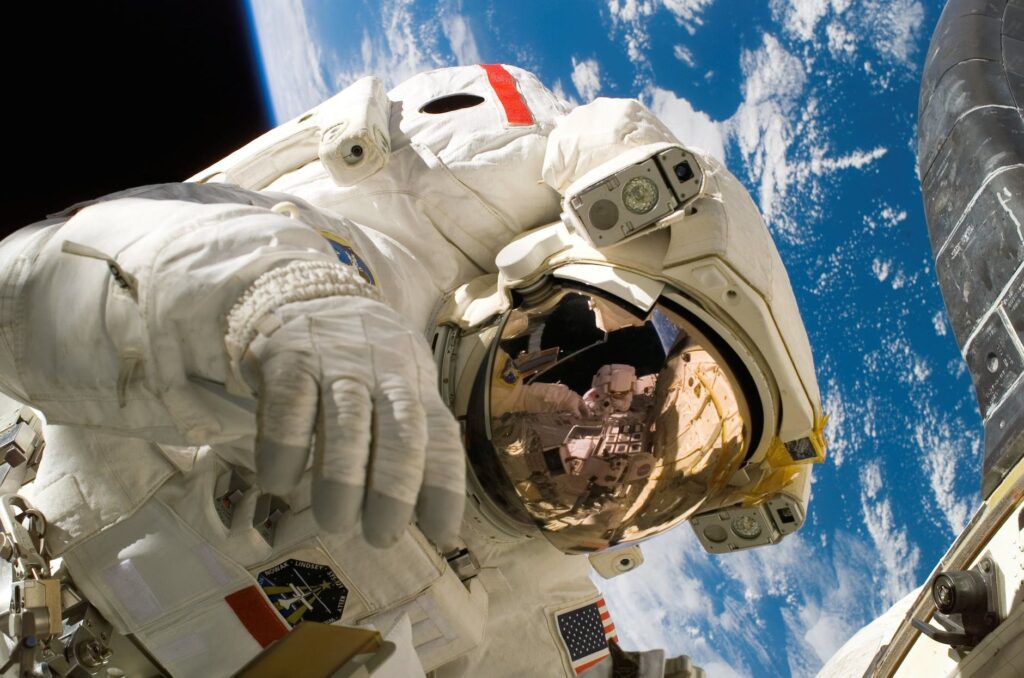 What I so like about science fiction is not only its potential to be a precursor to science fact, but its potential influence on all other aspects of society such as culture, government, entertainment, philosophy, etc. But does science fiction really influence science? And does science influence modern science fiction anymore?
What I so like about science fiction is not only its potential to be a precursor to science fact, but its potential influence on all other aspects of society such as culture, government, entertainment, philosophy, etc. But does science fiction really influence science? And does science influence modern science fiction anymore?
Last Monday, I attended a talk in Downtown L.A. by the organization, Zocalo Public Square which sponsors free events mostly in the Los Angeles area. The event was titled “Can Science Fiction Revolutionize Science?” Its main speakers were Neal Stephenson, NY Times best-selling author and called “legendary” for his science fiction/speculative fiction work, including his trailblazing cyberpunk novel Snow Crash; Lawrence Krauss, a theoretical physicist, cosmologist and tenured professor at the School of Earth and Space Exploration at Arizona State University, a bestselling author too including The Physics of Star Trek; and moderated by Annalee Newitz, editor-in-chief of io9, a popular blog that focuses on science fiction, fantasy, futurism, science, and technology.
When so much of the science fiction today is dystopian, the event was also a continuation of their collaboration on the book Hieroglyph: Stories and Visions for a Better Future, described as “inspired by New York Times bestselling author Neal Stephenson, an anthology of stories, set in the near future, from some of today’s leading writers, thinkers, and visionaries that reignites the iconic and optimistic visions of the golden age of science fiction.”
A full account of the event (and more generally positive than I’m about to write) is here: http://www.zocalopublicsquare.org/2014/09/16/when-science-and-science-fiction-collide/events/the-takeaway/
Sadly, Ms. Newitz, the moderator was far more interesting than either one of the guest speakers, but then they might have been frazzled from trying to find parking (if any of you have been to Downtown LA, then you know what I mean). However, there were plenty of excellent points made directly and indirectly.
The science guy, Mr. Krauss, said something that was funny: “my research has no practical relevance” and he seemed to want to prove the point by talking about something that he obviously was personally excited about: gravitational fields. I can’t say that I was and at one point I wanted to glance at my watch (oops, I don’t wear watches anymore, that’s what smart-phones are for) to see how long he was going to talk. It’s good to see someone with a genuine fascination in a subject, but I had zero interest, would never have any interest, and didn’t think anyone else in the audience did either. An important point he made was “most of the time in science you’re not making any progress.” Fundamentally from a public policy and public/private financing standpoint that is the problem; it’s hard to capture the public imagination when nothing much is happening.
What of the science fiction world of writing? Lots of dystopian futures, lots of space travel, lots of aliens, touches of time travel. However, not too much in the way of expanding on great scientific frontiers or trying to predict the next ones as their book Hieroglyph wishes to inspire. But is that fair? Did Jules Verne predict the submarine, lunar module, and taser gun or did someone just make that fiction into reality? Did Star Trek predict the cell phone (communicator) or was it the inevitable evolution of telecommunications regardless of whether a writer was smart enough to see it?
Another great point was made by Mr. Stephenson who responded to a quick question by Ms. Newitz about all the “White guys” writing science fiction. He made the point regarding the issue of diversity (which I wrote earlier in the month here) that there is a big difference between “diversity” and tokenism. One is real, the other fake and people can tell the difference. Also since you are writing fiction, every reader should be able to relate to your characters even a (Ah! Hide the children!) White person.
For my part, I have one science fiction series that would definitely fall into the dystopia category not because that’s what I prefer or is my personal inclination or worldview, but because I believe our real future is truly going to be more Blade Runner-ish rather than Start Trek-ish. But ultimately, I am a “glass is half full” rather than “glass is half empty” kind of guy and next year I will also introduce two sci-fi series that will be much more non-dystopian.
Science fiction is one of infinite possibilities in what you can create. Science is one of infinite possibilities in what you may discover. There will always be lots of overlap but both realms are their own unique planets and we shouldn’t try to marry them together every chance we get. We should simply ask ourselves of both is the science fiction good (the writing) and is the science relevant to my life or productive to the world?
Personally, it is hard for me to get excited about science today when so much of it is so inaccessible and inconsequential to me. I fully recognize that objectively that is unfair as it may very well be important and relevant, but if it can’t be explained in layman terms or a person has to go to graduate school for years to be able to understand what the hell you’re talking about, then the problem is the scientific community not the human community. This is the area where science fiction shines. We are much better salespeople. If the latest batch of science fiction is exciting and thought-provoking and can inspire the next great theoretical physicist, cosmologist, or futurist engineer, no matter how “unscientific” its science, then great! Write it!
#Neal Stephenson #Hieroglyph

Austin Dragon is the author of over 30 books in science fiction, fantasy, and classic horror. His works include the sci-fi detective LIQUID COOL series, the epic fantasy FABLED QUEST CHRONICLES, the international futuristic epic AFTER EDEN Series, the classic SLEEPY HOLLOW HORRORS, and new military sci-fi PLANET TAMERS series. He is a native New Yorker but has called Los Angeles, California home for more than twenty years. Words to describe him, in no particular order: U.S. Army, English teacher, one-time resident of Paris, ex-political junkie, movie buff, Fortune 500 corporate recruiter, renaissance man, futurist, and dreamer.
LATEST RELEASES: CRAZY MISADVENTURES IN LIQUID COOL and A MONSTROUS GAME!




